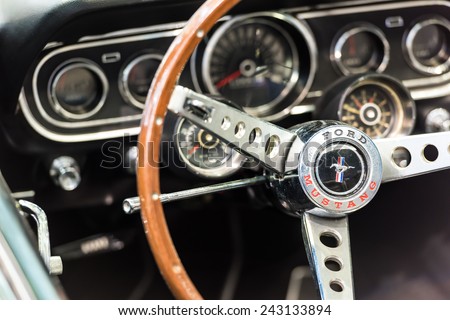
- Engine overheating can lead to permanent damage, so keeping coolant levels topped up and checking the radiator, coolant fans, and hoses are essential.
- Tire blowouts may occur due to high temperatures and long-distance driving; ensure tires are inflated to recommended pressure levels and check for visible damage.
- Battery power may drain quicker in summer heat; keep the battery clean, clear of debris, and fully charged.
- Air conditioning systems could malfunction due to overheating, clogged filters, or low refrigerant levels; get regular maintenance checks.
- Sun’s UV rays can damage car paint and interior; use a shaded area or car cover for protection and apply wax for exterior protection.
In summer, people go for long road trips and explore different places under the sun. While summer brings excitement and outdoor fun for all of us, it’s important to consider how the heat and other factors could affect your car. Excessive heat, long trips, and other factors could impact your car’s performance, safety, and longevity.
Summer in the U.S.
The temperature during summer in the U.S. can reach 81 degrees Fahrenheit. However, certain states can experience even higher temperatures. When your car is exposed to extended heat, its internal components, such as the engine, transmission, and tires, could be at risk of damage. The fluids in your car can also evaporate quickly due to the heat. Here are some ways summer can affect your car.
Engine Overheating
One of the significant issues that many car owners face during summertime is engine overheating. When your car’s temperature gauge indicates overheating, you should pull over immediately and turn off the engine. You could permanently damage the engine if you continue driving without resolving the issue. You should monitor the coolant levels and get them topped up regularly. Additionally, you should consider checking the radiator, coolant fans, and hoses.
![]()
Tire Blowouts
High temperatures and long-distance driving can cause stress on your tires, making them more prone to blowouts. Before starting your road trip, check your tires to ensure they’re inflated to the recommended pressure levels, and there’s no visible damage. If you notice any uneven wear or spots, take your car to a mechanic to fix them. Moreover, avoid overloading your car with heavy items, as it could increase the strain on your tires.
Battery Issues
Summer heat can cause your car’s battery to drain quicker than usual, leading to unexpected breakdowns. You should keep your battery clean, debris-free, and fully charged. If you’re taking a long trip, consider taking your car for a battery check and replacing it if necessary.
Air Conditioning Problems
Your car’s air conditioning system is essential during hot summer days, but it could malfunction due to overheating, clogged filters, or low refrigerant levels. You should take your car for regular AC maintenance, including checking the filters, belts, and refrigerant levels. If your car’s AC is not performing as it should, don’t hesitate to have it checked.
Faded Paint and Interior
The sun’s UV rays can cause damage to your car’s paint and interior, making it look older and duller. To prevent this, park your car in a shaded area or use a car cover to protect it from the sun’s rays. You can apply wax to your car’s exterior to help it withstand the elements and use seat covers to protect the upholstery.
How to Protect Your Car From The Heat
Thankfully, there are some precautions you can take to protect your car from the summer heat. Here are ways to do that:
Fix Your Car’s Tint
If your car has a tint, it must completely cover your car windows to protect it from the summer heat. A window tint repair service can do this for you. They can fix any holes in the tint, ensuring your car’s interior is astounding.
![]()
Check The Fluids
Ensure your car’s fluids are filled to the recommended levels. This will help keep your car running smoothly and prevent any damage from heat. Check for oil, coolant, and transmission fluid.
Regular Maintenance
It’s essential to take your car for regular maintenance during summertime. Taking it to a mechanic should be done at least once every two months to ensure all parts are working properly. Check the brakes, engine filters, air conditioning system, and tires before going on long trips or days when temperatures are high.
Proper Storage
Lastly, ensure you store your car in a cool, dry place when not in use. This will help protect the car’s paint job and other components from direct sunlight. Additionally, make sure your car’s windows and doors are closed when leaving it parked.
The summer weather can be unpredictable and cause damage to your car. Following these tips will help protect your car from the summer heat and ensure it runs smoothly all season. Ensure you keep your car in good condition to remain safe for yourself and others on the road. Enjoy the summertime with peace of mind, knowing your car is well-protected!